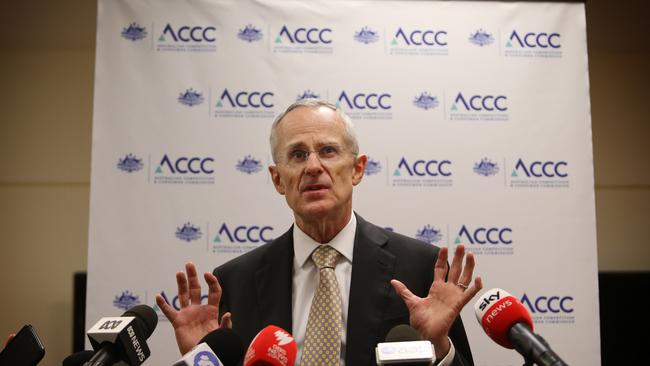ACCC faces new test in economic downturn
Will the Australian Competition & Consumer Commission be a roadblock to business restructurings caused by COVID-19?

Will the Australian Competition & Consumer Commission be a roadblock to business restructurings caused by COVID-19?
That’s the question being asked after the commission’s intervention recently resulted in a 50 per cent reduction in the sale price of a distressed business.
The Jewel Fine Food group of companies owned a state-of-the-art facility producing chilled ready-to-eat meals. It supplied those meals to supermarket chains in Australia. In April 2019 Jewel went into voluntary administration with Ferrier Hodgson appointed to oversee the process.
Ferrier Hodgson put Jewel’s business on the market and attracted a number of bidders. As a result, the administrators secured a firm offer that was very favourable for Jewel’s employees and creditors. The proposed buyer was also in the business of producing chilled ready meals.
Before the sale could take place, an unsuccessful bidder (who was associated with an existing wholesale buyer of Jewel’s products) lodged a complaint with the ACCC.
The ACCC handled the complaint in accordance with its usual guiding principles: would the acquisition of the Jewel business by the successful bidder impede or restrict competition in the relevant market (that is, the wholesale and retail supply of chilled ready meals)?
Applying those principles, the ACCC blocked the proposed sale of Jewel to B&J City Kitchen on the ground that it was likely to substantially lessen competition for the supply of chilled ready meals. The ACCC’s reasoning was based on the fact the proposed acquirer (B&J City Kitchen) and Jewel were the two largest producers of chilled ready meals who could meet the requirements of the major retailers.
As a result, the proposed sale would, in the ACCC’s view, concentrate the two largest suppliers with demonstrated experience and track records in manufacturing a broad range of chilled ready meals. What about the fact that Jewel was in voluntary administration? The ACCC’s answer was that, if the acquisition by the original proposed buyer did not proceed, it was likely the business would be sold to somebody else.
What happened next
The ACCC got it half right: knocking out the highest bidder didn’t mean that Jewel’s business couldn’t be sold at all. But the problem for the administrators was that they were now trying to sell into a market that knew the ACCC’s decision had reduced the number of potential buyers for the business.
Unsurprisingly, the best price the administrators could get was about 50 per cent of the originally accepted offer. The new sale process took many months, so the already massively reduced return for Jewel’s creditors was further reduced by the costs of that extended sale process.
Last month the ACCC approved the sale of Jewel to Chef Fresh, a subsidiary of supermarket operator Coles Group.
Will ACCC change tack?
The ACCC’s intervention in the sale of Jewel’s business was contrary to the policy of voluntary administration: it both protracted the sale process and left Jewel’s creditors worse off.
This would be disturbing at the best of times, but it’s a real cause for concern in the world of COVID-19. Even optimists expect that the pandemic will produce a record-breaking number of business failures. The ACCC needs to understand this: where necessary, classical competition theory must take a back seat to saving businesses and employees — and creditors — from the economic scrap heap.
There are some tentative signs the ACCC may be starting to realise this. Once the administrators found a new buyer (after COVID-19 hit Australia), the Commission broke “all speed records” (to quote one commentator) to clear the deal. Many businesses will experience distress in the months ahead. How will the ACCC view its role?
David Cowling and Sharon Henrick are both partners at
King & Wood Mallesons



To join the conversation, please log in. Don't have an account? Register
Join the conversation, you are commenting as Logout